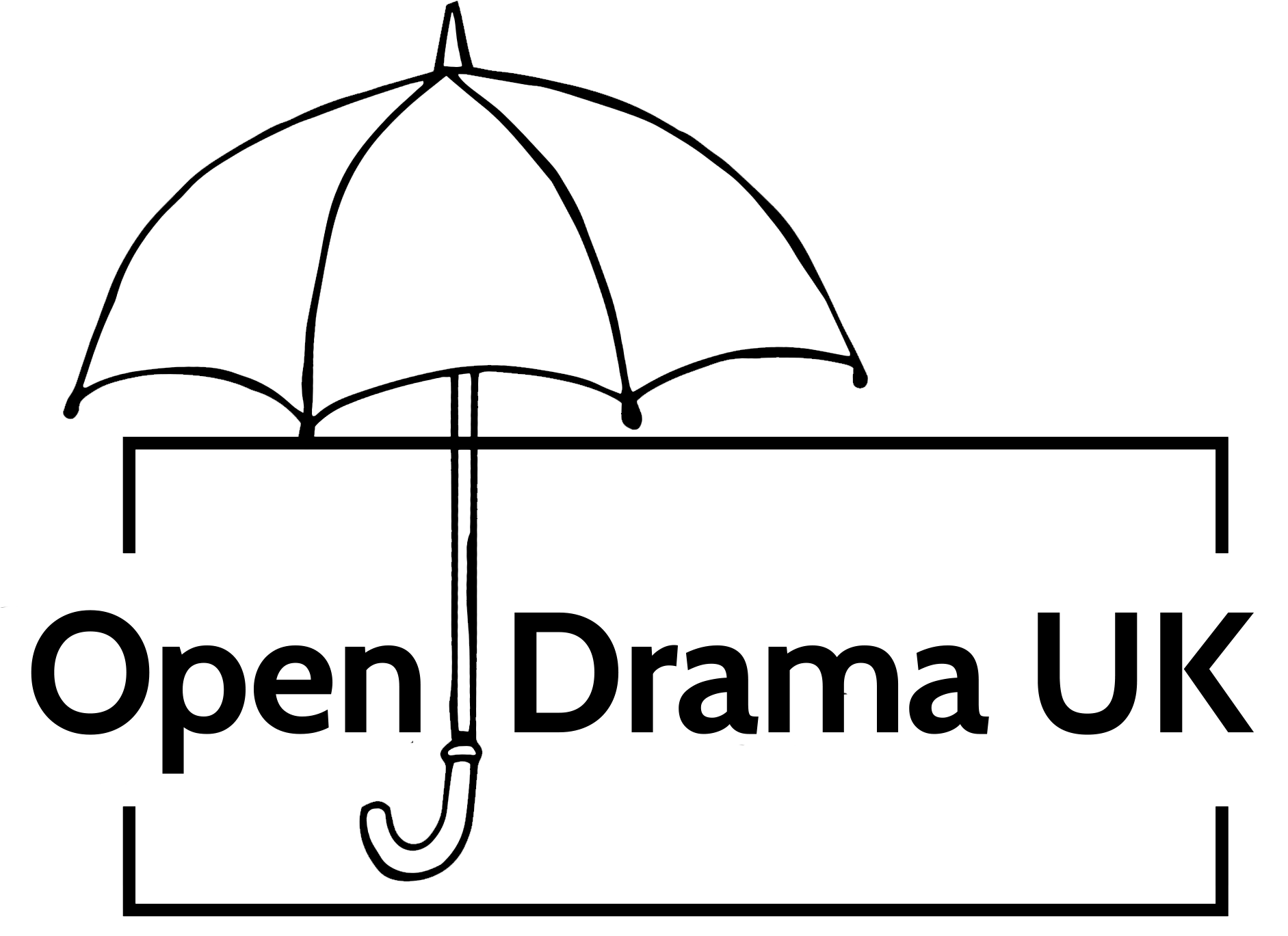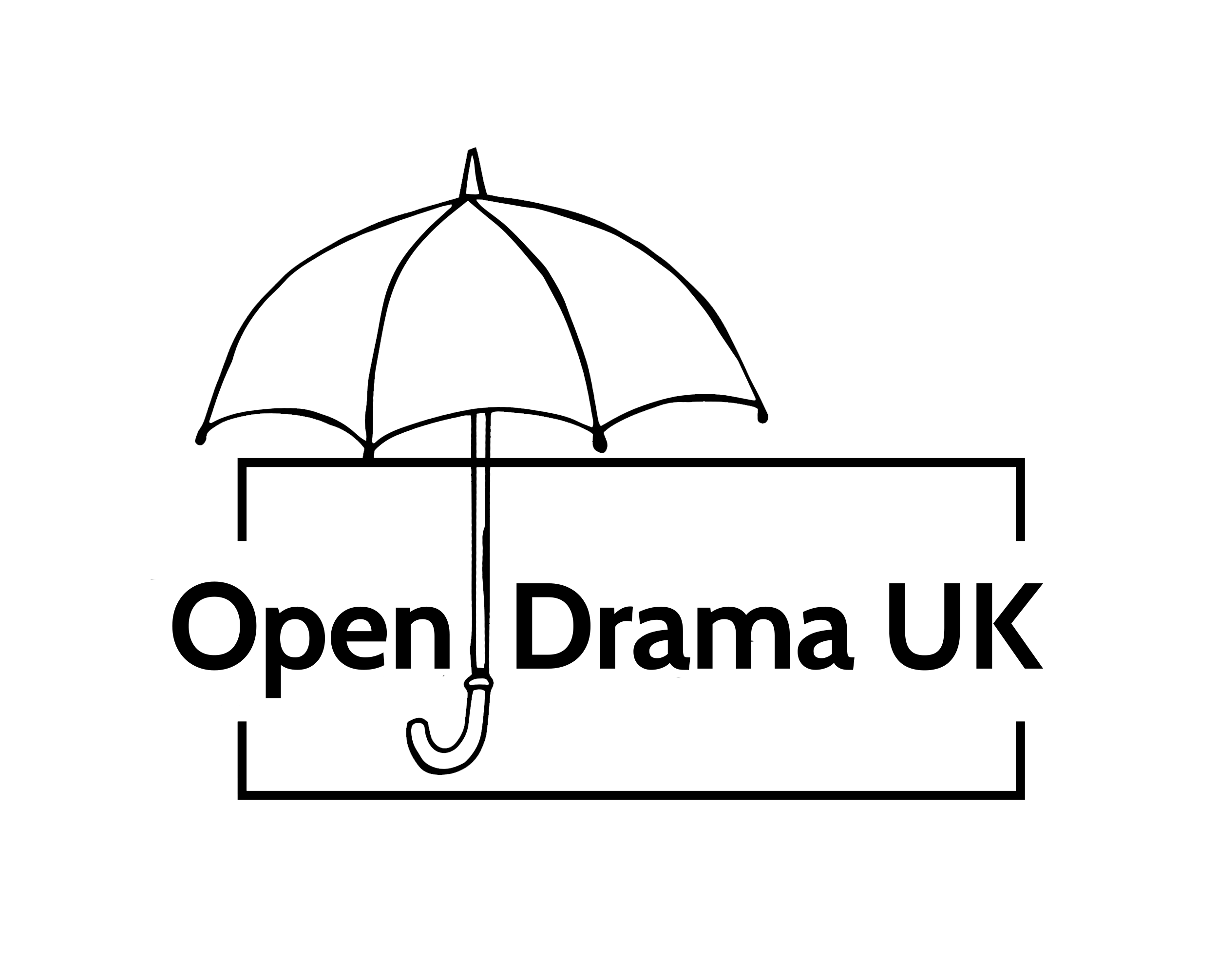Back in July Open Drama UK: North West and Manchester Metropolitan University hosted a day-long event of online support for early-career drama teachers.
We caught up with four of our amazing speakers to hear their thoughts on the event, their reflections and extra top-tips.
We’ll be hearing from Rachel Carr, Ashley Thomas, George Coles and Helen Openshaw.
What attracted you to get involved in this event?
Rachel: I was attracted to this event as it gave me the opportunity to start a conversation about mental health, alongside being a Drama teacher, this is something I am deeply passionate about! I also believe there is a unique awareness we have as Drama teachers and I wanted to ensure that the understanding and compassion we show to our students, is instilled within ourselves. Moreover, in light of the current circumstances, I wanted to provide a resource whereby mental health was discussed and to ensure new teachers, as well as all teachers, feel supported and never alone. I similarly felt very honoured to be part of an event with such incredible, caring and collaborative colleagues.
Ashley: The event was an opportunity to work collaboratively with teachers, practitioners & arts organisations to share and discuss ideas in Drama. Also contributing successfully to CPD outside the remits of whole school CPD expectations. Enabling teachers to continual develop subject knowledge in their subject area.
George: I was keen to contribute to the #DramaSupport Event for a number of reasons. I feel that some of the things I was taught as an early career teacher held me back and so I suppose I wanted to share my own reflections about teaching and learning in order to empower my colleagues. I also think it’s important to get involved in events like this in order to move the thinking forward in our subject. I am committed to developing drama and I believe the best way to do this is to engage in dialogue with fellow drama teachers. This is why I also like blogging! I knew that the process of creating a presentation would help me to consolidate my opinions on aspects of teaching drama and the subsequent feedback from my colleagues would keep me thinking and reflecting – both important qualities for all teachers!
What was your chosen topic and why is it important?
George: My presentation was entitled: The top 3 mistakes to avoid as a Drama Teacher. I detest what I see as nonsense within teaching – basically anything that doesn’t benefit pupil learning! Many of us have worked in schools where we’ve been expected to complete bureaucratic tasks to placate the powers above us! I think it’s vital to encourage teachers to be reflective and question every aspect of their practice. I’ve watched too many exceptional teachers leave the profession, often because they refused to give up their life for a job. I constantly remind my team that what we do is so important, but it is a job. Balance is crucial and we should never waste our time!
Rachel: My chosen topic was mental health and my goal was to encourage a culture whereby we discuss mental health and reflect upon it as part of our role in Drama and as teachers. I spoke about mental health as being on a spectrum and discussed how you can find yourself at different ends (from healthy to unwell) very quickly. I talked about the importance of being aware of the signs of becoming unwell (headaches, tearfulness, trouble sleeping etc) and encouraged teachers to feel comfortable in seeking support. I think this is so important, particularly for new teachers who are just embarking upon the vast array of activities and interactions that being a teacher brings.
I was also eager to promote to new teachers the significance they have, their impact on students and the sphere of influence they have on their worlds. To me, this is vital and ensures that teachers do not lose sight of their worth, particularly as they get used to the ongoing feedback and monitoring that comes with being a teacher. Furthermore, I wanted to bring an awareness to feelings of disconnect, whereby teachers feel as though they are simply ‘surviving’ from one half term to the next. In this instance, it is important to be mindful of any harmful thought patterns, ensuring your sense of value is not lost and to seek support should you need to.
Helen: My topic was Extra Curricular in Drama. I feel this is a vital role in the school and helps students feel part of a community. Activities can really foster relationships and be a positive force for the school as a whole.
Ashley: My topic was How can teachers use CPD to enhance their subject knowledge? As a PGCE/ NQT teacher of Drama, the size of your department or faculty may vary somewhat to your counterparts. From an NQT to present I have been in a single person Drama department. Due to the nature of the one person/ small department this has impacted the opportunities I have had to engage in CPD to collaborate and share outstanding practice with other practitioners. Naturally, you reduce the focus of CPD & securing subject knowledge which evidently enables you to develop an evolving curriculum. So I encourage you as a practitioner to engage yourself in a range of CPD opportunities i.e. Reading, Webinars, Youtube Clips, Reading Plays, Watching Productions to inspire and ignite your passion to impart subject knowledge and devise dynamic curriculums.
What was it like taking part in the live #DramaSupport chat on Twitter?
Ashley: It was exciting to be involved in the live twitter chat. The prompt of a lead question sparked a conversation and narrative around our area of discussion. #DramaSupport was reflective of the event ‘support’ - an opportunity for drama teachers in the field to share and discuss ideas with PGCEs and NQTs in an informal, non-judgemental, supportive virtual environment.
Rachel: Being part of the live #DramaSupport chat on Twitter was brilliant. Not only was it great to engage with questions, the liveness that the chat provided, meant that those asking the questions did not feel alone and I hope, felt supported! It also allowed us to open up a dialogue for new teachers which is so important! The extensive line up of Drama teachers and professionals who took part, were also able to share an array of pertinent and bespoke information to support those new to the profession. That said, the wealth of knowledge shared made it a brilliant experience, not just for new teachers, but for any Drama educator looking to expand their training.
George: This was my first experience of taking part in a live chat on Twitter and I found it thrilling! I think the speed and energy of the questions helped to create this buzz. Responding to questions in real time really makes you think on your feet and it was great to delve deeper into discussions and expand upon some of the points covered within the presentation.
Do you have any final comments or thoughts on the experience of this process?
Rachel: Being part of the Open Drama event was an incredible experience and demonstrated what a wonderful community of Drama educators we have. I really do believe that together we have made a difference and we will continue to do so. For new teachers, I hope you will see what a refreshing perspective you bring and how invaluable you are to a department! Please know that there is a wonderful community of educators that want to share, help and support you in your journey. Particularly, in the circumstance we find ourselves in right now, please keep this conversation surrounding mental health going, please talk, please look after yourself and know you are not alone.
Ashley: It was a great experience to be involved in. It has grown my confidence and made me feel more secure in myself as a Dyslexic Drama teacher tweeting about my subject and passion in an open forum. I have learnt many things from experienced Drama practitioners that I am able to apply in my own practice. As well as build a positive network of like-minded specialists with open, honest and reflective teachers.
George: What I hadn’t anticipated from being involved in the #DramaSupport event was the tangible sense of camaraderie and community. Up until last year, I’ve always worked in a department with another drama teacher, now I’m the only full teacher of drama and it can feel lonely. I guess being part of the event allowed me to feel part of something bigger and I learned so much – I just hope we get to do it again!
Helen: I really enjoyed reflecting on my practice and passing on tips to others.
What are your three final tips for early career Drama teachers?
Rachel:
- Talk - I want to empower all teachers to find someone to talk to, should they feel their mental health is suffering. By talking, this can work as a coping mechanism and help point you in the right direction for further support.
- We are stronger together than we are apart - embrace working in a team, celebrate when things go well, learn from each other and share your work.
- Please also know that we are all learning, do not be intimidated or feel that you can’t achieve because you are a new teacher - instil the same ability to dream within yourself, as you do with your students.
Ashley:
- Enhance your subject knowledge by engaging in key reading in your subject area, reading plays and watching productions.
- Engage in CPD opportunities i.e. webinars, courses, workshops & events.
- Build a network of like-minded specialists.
George:
- Plan lessons with a clearly defined learning aim
- Recognise the limitations of practical work
- Consider the effort to impact ratio in everything you do
Helen:
- Observe.
- Pace yourself
- Don’t worry when things go wrong
Catch up with all the amazing talks and sessions from this event by checking out our YouTube Channel by clicking here.


